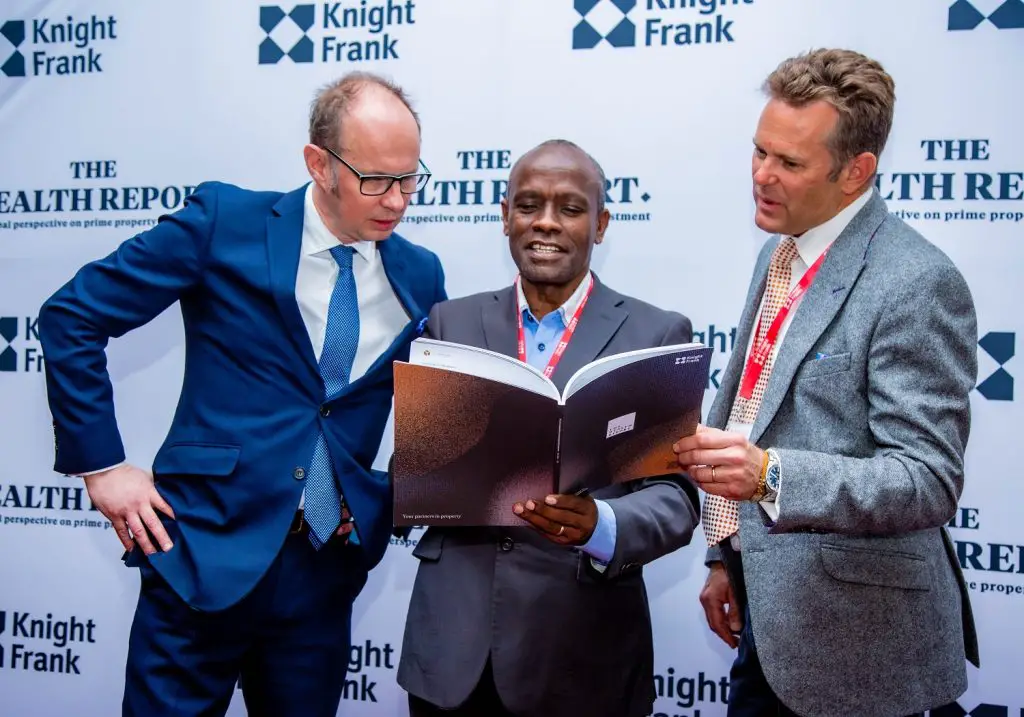- Kenya’s dollar millionaires seeking new passports are interested in reducing their tax bills, enhancing their safety, or getting a better quality
- Kenya’s dollar millionaires have identified climate change as a great threat to their wealth
- Kenyan millionaires report greater concerns about succession than the norm
More than a quarter of Kenya’s 3,362 dollar millionaires are now planning to apply for a second passport or a new nationality to enable them to grow their wealth.
The move, according to the latest Knight Frank’s 2022 annual Wealth Report, will provide greater investment, education and healthcare access.
According to the attitudes survey, this level of second-nationality investment amounts to almost twice the global average for wealthy individuals, with an average of 15 per cent of dollar millionaires seeking additional or changed nationalities worldwide, compared to 28 per cent in Kenya.
Read: Start-up ideas in Africa for 2022
However, the proportion of Kenyans seeking foreign passports is not the highest for Africa, with 31 per cent of high net worth individuals (HNWIs) in South Africa seeking a second passport, and 44 per cent of HNWIs in Nigeria.
Andrew Shirley, editor of The Wealth Report at Knight Frank said that amongst Kenyans seeking new passports, the proportion was interested in reducing their tax bills, enhancing their safety, or getting a better quality of life just as much as the wealthy globally.
Of Kenyans seeking new passports, around 59 per cent are doing so as an investment, against a global average of 17 per cent, while 38 per cent cite education as a driver, compared with 18 per cent worldwide.
Meanwhile, 34 per cent are seeking better healthcare, compared with 13 per cent worldwide.
Shirley added that the big difference for Kenya’s dollar millionaires is the proportion of new nationality applications for investment purposes, and in pursuit of better education and better healthcare for themselves and for their families.
This balance of motivations contrasts with the rest of Africa, where 63 per cent of the HNWIs applying for second nationalities are seeking increased safety and a better life.
Knight Frank Kenya MD, Ben Woodhams, said the rising trend of ‘nationality planning’ from Kenya’s wealthy was highly focussed as a route to best-in-class investments, education and healthcare, with property investments making up a significant component of that investment.
Kenyan HNWIs are far more likely to be residential and commercial landlords than average.
This difference is most notable in commercial property investments, accounting for around 49 per cent of the wealth held by Kenya’s most wealthy individuals, but only around 27 per cent of the assets of the wealthy worldwide.
However, Kenyan millionaires are unusual in holding such a high proportion of their assets in their own country, owning an average of just 19 per cent of their property portfolio overseas, compared with an average across all HNWIs of 32 per cent.
“Overall, the shift to nationality applications driven by the principle aim of investment and from an established platform of preference for property ties with the interest by Kenya’s wealthy in owning properties overseas. Their long-standing preference for investing in property at home is now extending to real estate investments in the US, UK, Australia and UAE,” said Andrew.
Climate change threat to Kenya’s HNWIs
In addition, Kenya’s dollar millionaires have identified climate change as a great threat to their wealth.
84 per cent of these HNWIs cite the global environmental change as a financial risk, compared to 54 per cent worldwide, and 64 per cent across the rest of Africa.
Read: The impact of Africa’s growing millionaires on socio-economic growth
Shirley says that the 2021 report did not identify climate change as a wealth risk, making for a rapid shift in risk perception from Kenya’s High-Net-Worth Individuals. This is because Kenyans are living on the frontline of the environmental changes making them far more conscious of the environmental impact than many western investors.
Kenyan millionaires also perceive greater threats from the country’s challenges with global trade after the disruptions caused by the Covid-19 pandemic to supply chains and globalised flows and relationships.
Some 63 per cent of Kenyan HNWIs now view supply chain disruption as a potential threat to their wealth, compared with 55 per cent worldwide – with businesses, everywhere, acutely aware of the high impact that any supply disruption can cause on economic outcomes.
More exceptionally, Kenyan millionaires report greater concerns about succession than the norm.
“The transfer of wealth to the next generation is a key moment of vulnerability for HNWIs worldwide, as poorly managed successions can lead to rapid wealth depletion. In Kenya, however, with frequent evidence of succession disputes and even protracted court cases, the threat is made greater through the degree of challenge in simplifying or accelerating the outcome of such disputes,” notes Shirley.
This has seen 31 per cent of Kenya’s millionaires cite succession as a threat to their wealth, compared with a global average of 20 per cent.
Read: Africa’s luxury market: The finer things in life
